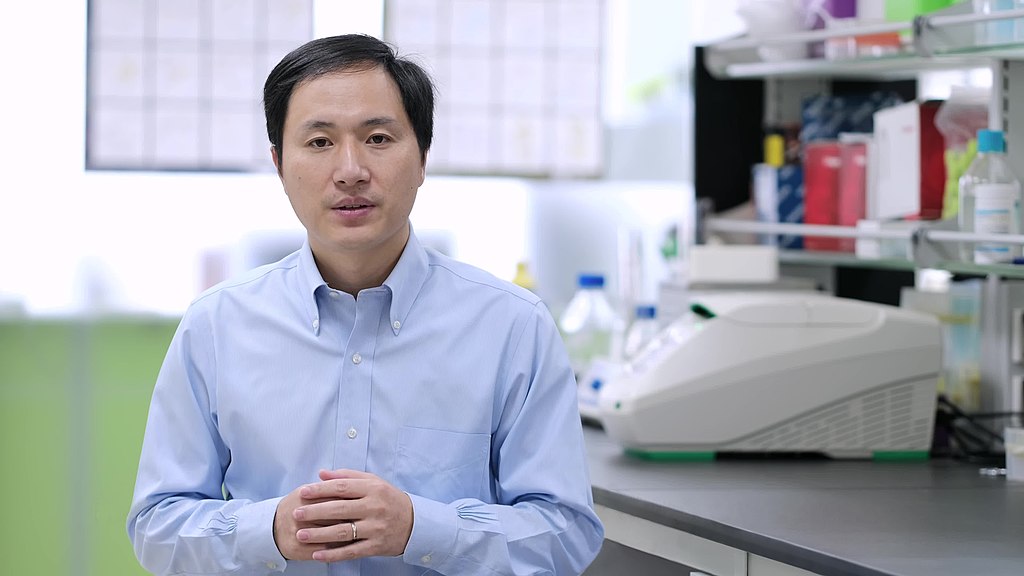On November 25th, Chinese geneticist He Jiankui shocked the scientific community by revealing that he had (allegedly) used CRISPR technology to edit the DNA of now-born human twins. Against the advice of both global experts and personal confidants, He’s team aimed to remove a gene sequence from Lulu and Nana’s genetic code in an attempt to render them resistant to illnesses like HIV, smallpox, and cholera. Since the story first broke, a spiral of unsettling details has unraveled, from the project’s murky treatment of informed consent, to its use of potentially forged signatures on approval forms, misleading statements made by He to his institution, and the curious retainment of a foreign PR firm to produce videos advertising the otherwise-secretive experiment – to say nothing of the fact that it’s unclear how He planned to actually test the success of his genetic edits without simply exposing Lulu and Nana to various diseases. Altogether, this mess led The Atlantic’s Ed Yong to assert that “If you wanted to create the worst possible scenario for introducing the first gene-edited babies into the world, it is difficult to imagine how you could improve on this 15-part farce.”
Neither the potential for He’s experiment, nor the recognition of its moral problems are new (Rachel Robison-Greene wrote on this very topic for the Prindle Post less than a year ago) and though the results of He’s experiment have yet to be published, the story has already engendered its share of outcry. Although gene-editing therapy has been tested in limited cases, those instances have been heavily monitored and specifically curtailed to only affect the individual patient being treated; not only did He circumvent the general advice of the scientific community and surprise the world with this news, but he claims to have edited Lulu and Nana’s germline in a way that will inevitably be inherited by any children they may eventually have. If true, the ramifications of He’s experiment for Lulu and Nana’s future is exceptionally large.
More broadly, He’s surprise has brought a bevy of important questions about the ethics of germline editing, the equality of persons, the risk of eugenics, and the role that factors like bias and socioeconomic status will undoubtedly play in the use of this technology in the future. Although these sorts of questions have long been simmering on the back-burner of ethical debates, He’s announcement (and the suggestion that there are other possible patients still unborn) has rocketed them into the spotlight with unexpected urgency; whereas ethicists may have once thought we had years to quibble about the particulars of theoretical cases involving genetically-modified humans, the deadline for such conversations has, apparently, already passed.
He’s actions, though officially cautioned against, were not explicitly prohibited. Although the last meeting of the International Summit on Human Gene Editing warned in 2015 that such experimentation would be ill-advised in the absence of a consensus over norms within the discipline, the lack of such consensus gave He the confidence to forge ahead unfettered. Most disturbingly, there exists at least some evidence that He actively ignored the little advice he did seek on the ethical implications of his work.
Famously, in response to the greedy motivations of Michael Crichton’s fictional InGen company in the blockbuster novel-made-film Jurassic Park, mathematician Ian Malcolm decries the short-sightedness of the gene-editing scientists who cloned dinosaurs back to life with the phrase “Your scientists were so preoccupied with whether or not they could, that they didn’t stop to think if they should.” There are many elements in Jurassic Park that are unrealistic; human hubris, particularly in the realm of potential scientific progress, is not one of them.
As of this writing, He has reportedly been detained by the Chinese government; at present, his future appears to be as uncertain as Lulu and Nana’s. One thing that is not uncertain: as our collective technological capabilities increase exponentially, the need for informed ethical advisors on scientific projects (and scientific researchers informed about ethical principles) are needed now more than ever.

